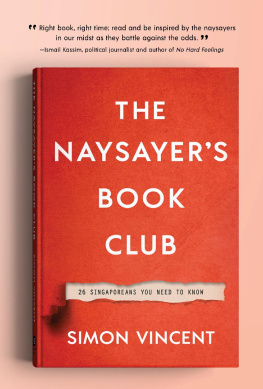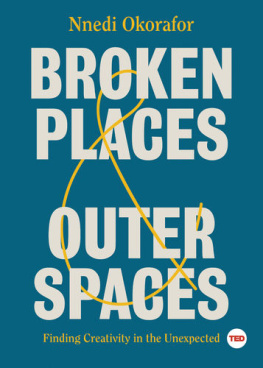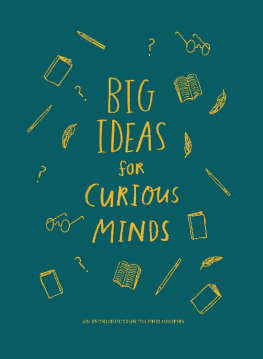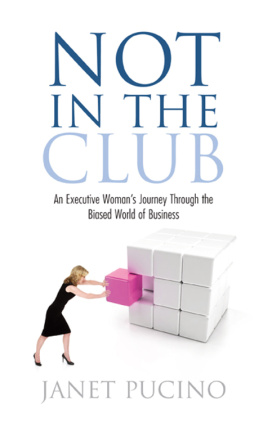The Naysayers Book Club
26 Singaporeans You Need to Know
Simon Vincent
ISBN: 978-981-47-8585-3
First Edition
Text copyright 2018 by Simon Vincent, photographs copyright 2018 by Foo Chuan Wei
Photograph on page 79 from Cherian George. Used with permission.
Artwork on pages 152, 155, 158 by Dan Wong. used with permission.
Author photograph by Eng Chun Pang. Used with permission.
All other photographs by Foo Chuan Wei
Book layout by Chee Jia Yi
Published in Singapore by Epigram Books
www.epigrambooks.sg
All rights reserved
Table of Contents
Simon captures the other ways of thinking in Singapore with these rich and colourful profiles, revealing to us a Singapore that could have been, or perhaps a Singapore that might someday be. Naysayers is a book about those who swim against the flow, but it isnt about tiredness; its about hope.
Daniel Yap, publisher of The Middle Ground
The 26 essays are inspiring accounts of the subjects: who they are, what they are, what they do, their exemplary efforts to speak up and their brushes with the law and the authorities in a society constrained by a matrix of repressive laws. Edifying and a must-read, especially for civil society activists.
Peter Low, human rights lawyer and founder of
Peter Low & Choo LLC
In Singapore there is a fine line between co-option by the establishment and ostracism by society. These delightful vignettes are about the brave men and women who tread itoften at great personal costexpanding our collective imagination in ways the elite never can. Instead of calling for more naysayers, Singapore would do well to listen to those it already has.
Sudhir Thomas Vadaketh, author of
Floating on a Malayan Breeze
I was not disappointed in the depth and authenticity of the interviews The chapters on Sonny Liew, the award-winning comic book maestro, and Thum Ping Tjin, the controversial historian who startles with his honest interpretation of history, will be among those I will turn to first.
Clement Mesenas, journalist and author of Dissident Voices
and The Last Great Strike
An inspiring collection of interviews with respected Singapore civil society activists. Not only do we hear how they came to be, why they do what they do, we take a peak into their bookshelves to understand the ideas that galvanised them. A book lovers book!
Tan Pin Pin, director of In Time to Come and
To Singapore, with Love
Right book, right time; read and be inspired by the naysayers in our midst as they battle against the odds.
Ismail Kassim, political journalist and author of
No Hard Feelings
An Invitation
We need more naysayers
We need to create new formulas, which you cant
until you attack and challenge every sacred cow.
Kishore Mahbubani, former dean of the
Lee Kuan Yew School of Public Policy
O n 24 February 207, a panel of academics and former civil servants rallied around the call for more naysayers in Singapore. The next day, The Straits Times published its report, Why Singapore needs more naysayers, and fittingly enough, naysayers entered the fray.
None of them, at least those airing their views online, seemed to take issue with the validity of the need itself. The general point of contention was the glaring absence of discussion about political controls in Singapore. An alternative headline, picking up from where The Straits Times left off, could be Why Singapore doesnt have more naysayers or Why Singapore needs to listen more to its naysayers.
By this time, I had been a third of the way through writing this book and had already heard the accounts of two interviewees paying the price for challenging the status quo. I had also heard from those who were unaffected by their dissenting ways. The terms of naysaying vary according to backgrounds and historical references.
It seemed to me that, however modestly, the stories in this book could answer the call of the panellists and the ensuing demand for honest context. There are some clear markers in the politics of naysaying in Singapore: defamation suits by ruling party politicians, detention without trial and curbs on civil liberties. The countervailing force is the countrys ongoing social and political liberalisation, which, however fraught with contradictions, has benefitted from naysayers and establishmentarians alike. Seeming to bridge the two camps, Ambassador-at-Large Tommy Koh said at the naysayers panel: When we appoint people to boards, we can also appoint challengers who are subversive and who have alternative points of view.
Elsewhere on the same day, Prime Minister Lee Hsien Loong was voicing his own support for alternative views: If all you have are people who say three bags full, sir, then soon you start to believe them and that is disastrous. You need people who have their own views, whose views you respect, whom you can have a productive disagreement with, and work out ideas which you might not have come up with, or who improve on ideas you had. It is worth pointing out the context of the comment: he was speaking at Camp Sequoia, an annual technology summit organised by venture capital firm Sequoia Capital India.
In his remarks, the prime minister had used many examplesthe banking industry, tax collection, telecommunications, privatisation and information technologythat were in keeping with the innovation theme of the event and Singapores reputed economic verve and technocratic governance. Only the topic of the elected presidency, with its latest iteration reserved for minorities, seemed to break the mould.
Even the exhortation for naysayers by the panellists could be seen as somewhat conservative, given that civil servants were often the explicitly-stated targets. Professor David Chan, in reference to the civil servants among the 350 audience members, said: You talk so much to me but when the minister is present, in front of him, youre absolutely silent.
This book is aimed at reflecting the spectrum of naysaying and, through the variegated anecdotes, connecting the political, the social, the cultural, the economic and the personal. The naysayers here include architects, academics, journalists, artists and activists. The faces are young and old. And the voices, radical and temperate.
The 26 Singaporeans in this book were chosen because they have made inroads in their respective fields by subverting convention. They have been bold in speaking out and, thus, have pushed new points of discussion into the public sphere. They are rebels with a cause, publicly-engaged thinkers and alternative dreamers. They are naysayers in the productive sense heralded on 24 February.
Incidentally, Prime Minister Lee had revealed at Camp Sequoia that, during interviews for potential officeholders and members of parliament, he asks them what they read to get some sense of what their interests are. The interviews in this book, though obviously not for any jobs, deal with reading as well. Indexed throughout the 26 profiles are the naysayers favourite books, thinkers and writers.
I sought to interview each person against the backdrop of his or her respective bookcase. Where circumstances did not permit the use of this metaphorical device, the interviewee and I opted for another arrangement. The prevailing motif was to put, front and centre, the interviewees life of ideas and imagination. After the interview, I asked him or her to send via email a definitive list of ten favourite books.
Sometimes, the reflections on books segued into personal anecdotes. The lawyer Remy Choo Zheng Xi, for instance, spoke of his special copy of Make It Right for Singapore: Speeches in Parliament, , by the late dissident and politician JB Jeyaretnam. Choos mother initialled it herself, alongside an autograph by the author, as a way of supporting his interest in politics and, concurrently, looking out for him.









